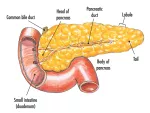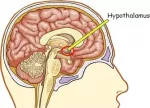
The parathyroid glands are four small glands that have the sole purpose of secreting parathyroid hormone to regulate the calcium level in our bodies.
The parathyroid essentially helps the nervous and muscular systems function properly. Calcium is the primary element that causes muscles to contract, and calcium levels are very important to the normal conduction of electrical currents along nerves.
Anatomy of the Parathyroid Glands
The four parathyroids are typically found on the back side of the thyroid. They’re about the size and shape of a grain of rice.
Although the parathyroids are very close to the thyroid gland anatomically, they have no related function. The thyroid gland regulates the body’s metabolism, while parathyroid glands regulate calcium levels and have no effect on metabolism.
Parathyroid Hormone
Parathyroid hormone (PTH) has a very powerful influence on the cells of your bones by causing them to release their calcium into the bloodstream.
- PTH regulates how much calcium is absorbed from your diet, how much calcium is excreted by your kidneys, and how much calcium is stored in your bones.
- We store many pounds of calcium in our bones, and it is readily available to the rest of the body at the request of the parathyroid glands.
- PTH increases the formation of active vitamin D, and it is active vitamin D that increases intestinal calcium and phosphorus absorption.
Diseases and Disorders of the Parathyroid
When the parathyroid releases too much or too little PTH, it adversely affects your body in a variety of ways. Below are common diseases and disorders associated with the parathyroid glands:
- Hyperparathyroidism: The most common disease of parathyroid glands is hyperparathyroidism, which is characterized by excess PTH hormone, regardless of calcium levels. In other words, the parathyroid glands continue to make large amounts of PTH even when the calcium level is normal, and they should not be making the hormone at all.
- Hypoparathyroidism: Hypoparathyroidism is the combination of symptoms due to inadequate parathyroid hormone production. This leads to decreased blood levels of calcium (hypocalcemia) and increased levels of blood phosphorus (hyperphosphatemia).This is a rare condition and most commonly occurs because of damage or removal of parathyroid glands during parathyroid or thyroid surgery.
- Osteoporosis: When one of the parathyroid glands is overactive, it releases too much PTH hormone. This causes your bones to release calcium constantly into the blood stream. Without enough calcium in your bones, they lose their density and hardness. Osteoporosis is characterized by this loss of calcium and bone density.
The parathyroid glands have a single responsibility—regulating calcium levels. The glands are important members of endocrine system, but they are also integral to the proper functioning of the nervous and muscular systems.










